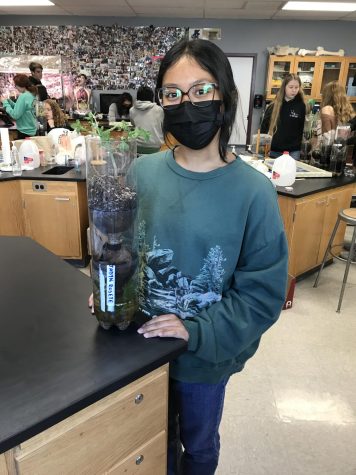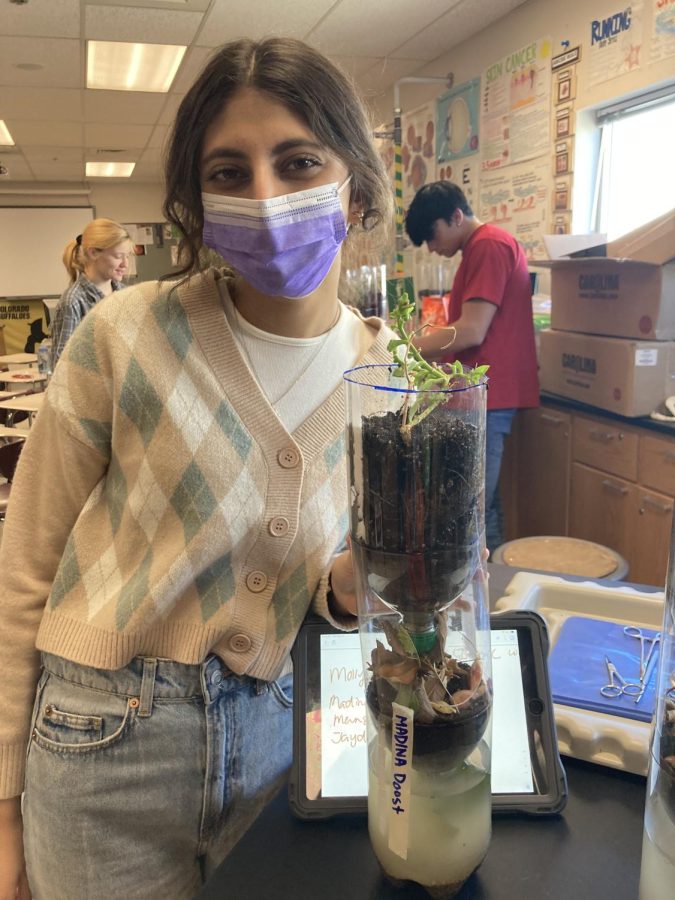Students Take on the Severity of Environmental Pollution and Research
January 24, 2022
The media and news outlets are constantly blasting climate change and broadcasting the plastic pouring into our oceans. As a teenager growing up in this chaos, hearing pessimistic news can often feel stiffening and defeating.
Researching why pollution is bad for the planet is also hard to fully grasp. It’s easy to remember to put cardboard, excess paper, and aluminum cans into your recycling bin, but seeing physical change actually happen is quite slim. Our short time on Earth only permits a glimpse of the environmental impacts of our actions.
Mr. Prey’s AP Environmental Science and Marine Biology class challenged today’s hot topics of pollution. Each lab group was given the confines of an experiment: make multiple eco-columns with three chambers (terrestrial, decomposition, and aquatic) from plastic 2-liter bottles. Given these instructions, students were to conduct an experiment by themselves, bringing in their own materials and formatting a unique purpose, hypothesis, and procedure.
Senior, Jadyn Rosete, studied environmental impacts of acid rain, pesticides, and runoff of chemicals on plant growth and aquatic life by testing different pH levels.
“I learned the impacts of acidity on the environment and how it’s important to mitigate the effects of acid rain as well as it’s causes,” said Rosete. “Such as the burning of fossil fuels.”

After testing and observing the eco-systems for over two weeks, Rosete’s final results showed a slow and steady influence from the use of pesticides and chemicals on other surrounding environments.
Junior, Jessica Wentzel, stimulated her ecocolumns with excess amounts of fertilizer.
“With the amount of fertilizer we used it actually wasn’t enough to concur too much data but we discovered that without any fertilizer or care, it was hard to keep a plant alive,” Wentzel said.
With just enough fertilizer to benefit the terrestrial plant, Wentzel was able to understand the advantages of composting without applying an excess amount to exploit her aquatic chamber.
The different experiment’s findings are corroborated by scientists and media outlets: conservation, recycling, and a decrease in the amount of pollutants will aid the saving of our environment, or at the very least, slow down the decay of our beautiful planet.






